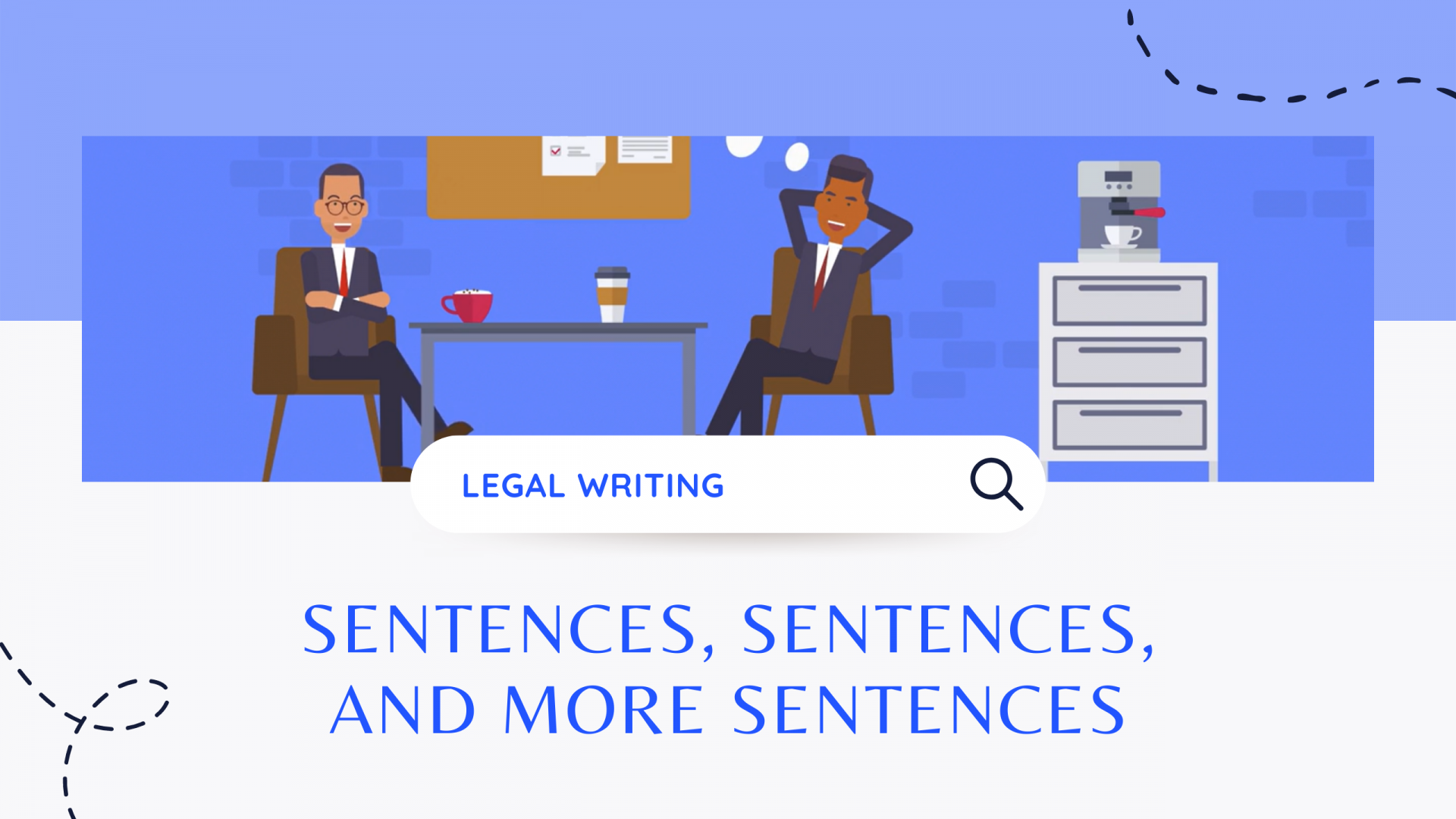WRITING
Sentences, Sentences, and More Sentences
Learn how to write sentences that make a difference in a clear, plain, and persuasive way.
-
Joe Regalia

Words matter, but sentences are everything. Because even the best word can't do much without a good sentence. And bad sentences can't be fixed with good words.
Many of us fall short on sentences. Even after all these years, we tend to churn out whatever random sentence comes to mind. We know what we want to say, and we let the sentences land where they will.
But with a little purpose, you can open up the power of the sentence.
Let's start with something that may seem simple but foils many legal writers: comma sentences.
Even seasoned lawyers sometimes scratch their heads when deciding where to put commas. You probably know the popular rules.
-
Between two independent clauses with a coordinating conjunction ("I did this, and he did that").
-
To separate a list of three or more items (yes, you should probably use the oxford comma).
-
To set off dialogue ("Wow, he said.").
-
In dates ("September 16, 2020").
-
In numbers ("3,000").
Where else should you use commas? Learn the three other common times they are needed. If it's not one of these situations, you probably don't need a comma and you can stop wondering.
01
When your sentence doesn't start with the subject. You will usually set off that intro phrase with a comma (the word or phrase that isn't part of the core subject/verb sentence). Take the below sentence. The subject carrying out the action is "the lawyer." So that lead-in is an introductory phrase in need of a comma.
Wondering why he wasn't funny, the lawyer left the room.
02
When there's a phrase in the middle of the sentence that is an aside and not part of the core subject/verb sentence. In this next example, note how the phrase in the middle is an aside that could be removed without affecting the core subject/verb clause (the lawyer leaving the room)
The lawyer, wondering why he wasn't funny, left the room.
03
When a group of words at the end of a sentence modifies the independent clause before it. Like this:
The lawyer left the room, wondering why he wasn't funny.
Yes, there are some less common comma requirements (like phrasal adjectives), but mostly commas are used to set off the main subject/verb of the sentence and everything else.
Know the other sentence basics.
Beyond commas, you don't have much to master when it comes to the fundamentals.
-
Semicolons separate independent clauses ("Joe did this; Bob did that.").
-
Colons set off an explanation or added detail ("Details matter: a lot").
-
Em dashes are flexible and can often stand in for a colon or commas setting off important side matters ("But—to be fair—they are also fun").
Getting comfortable with these basic forms will unlock your ability to start experimenting with more engaging structures.
With fundamental structures out of the way, how do we level up our sentences?
The best way is to learn the most useful style sentence structures. Then you can deploy them when helpful. This is much better than winging it, I promise. Writing has been around for a long time. If there's a useful sentence structure, it's already been crafted.
For example, take the appositive cluster. This is a group of words that all modify a single word. These sentences provide a pithy and powerful buildup:
Hungry, smart, motivated—lawyers in a nutshell.
Or echo words. These sentences connect disparate phrases with a common anchor word:
The court knew what it ruled, it ruled that way again, and it has not revisited that ruling.
You can convert a noun into a verb to create subtle emphasis. Notice in this next sentence that "lawyer" is used as a verb:
Embracing technology is the new way to lawyer.
Once you start looking for sentence structures, you'll find them everywhere. From articles to tweets to classic literature. Each structure can evoke different images, emphasis, or effects, depending on how you use them.
You may even try a fragment sentence. Fun stuff.
Joe Regalia
Write.law co-founder Joe Regalia combines his experience as both practitioner and professor to create exciting new ways to teach legal skills. Learn more about Joe
Sign up for our newsletter!
Get writing and other legal practice tips delivered to your inbox every other Thursday.
Thanks for joining!
We’ve sent a welcome email to your inbox.
We’ve sent a welcome email to your inbox.
We're on a mission to make legal skills training engaging, effective, easy to use—and accessible to all.


